Open Beit Midrash 5782/2021-22
Tuesday Evenings, November 16, 2021 to March 22, 2022
7:00-9:00pm
Click Here to Register Now!
Beit Midrash is a term given to the House of Text Study in the traditional Jewish community. Its atmosphere is fundamentally different from the secular educational schools with which we are generally more familiar. In universities, for example, classes are quiet and ordered, and in libraries the most focused study occurs in separate, private carrels. The Beit Midrash atmosphere, in contrast, is energetic, even boisterous. Students often sit around tables, and the physical proximity encourages them to listen, share, argue and imagine together.
What explains the passion and intensity of the Beit Midrash?
Jewish text study comes primarily not from intellectual interest, but from a love affair. From Sinai, 3300 years ago, Jews have been drawn to the study of the Torah and other sacred writings because these addressed their most important questions about life. Just as we learn about ourselves in our intimate, loving personal relationships, so study of texts helps us to discover who we want to become. As in all relationships of love, the connection to the texts is marked by reflection, unpredictability, struggle and joy.
By exploring Jewish literature of all ages, Open Beit Midrash illuminates key moral and spiritual challenges which we face today. This year, we will study questions as old as violence in the name of religion and as new as depictions of Jews in Hollywood sitcoms. Along the way, students will encounter classical Biblical, Rabbinic, and early Christian texts, as well as ancient Egyptian, Greek and Roman works, Kabbalah, Chasidim, and contemporary feminist Midrash.
Open Beit Midrash is for learners of all levels. We value diversity. Come whether you have studied Jewish texts for twenty years or are a complete novice. All texts are studied in English translation. Open Beit Midrash is held almost every Tuesday evening, 7:00-9:00pm, from November 16, 2021 to March 22, 2022. The sessions will be either in person or online, depending on the public health situation, and registrants will be advised as we get closer to the course dates. Whether in person or virtual, we will offer a time for social gathering from 7:00-7:30pm, and then the course from 7:30-9:00pm.
While the program is drop-in and you may attend as much or as little as you like, please consider the full 18-week program, in order to appreciate the journey and growth of Jewish wisdom from Sinai to the 21st Century. As detailed below, we offer a subscription option which enables you to attend all of the sessions for the year.
Cost: $40 per three-week course, or as many courses as you like for up to 18 evenings, $180 per person.
Scholarships are available; please contact Rabbi Paul Resnick for more information.
Click here to register for Open Beit Midrash online, or call the office at (718) 875-1550
For more general information, if you’d like to volunteer in one of the Beit Midrash committees, or would like to suggest a course, contact Joy Fallek at [email protected].
Courses
Art as Midrash: Vayigash, Vayhi, Shemot (Genesis 44:18 – Exodus 6:1)
with Cantor Sarah Myerson
November 16, 23 and 30, 2021
How are biblical characters explored in Rabbinic midrash and in visual art? We’ll look at media including paintings, drawings, linocuts, sculptures, photography, and digital art; from medieval times through to contemporary creations. We’ll discuss the ways in which each artist creates a visual midrash on the biblical text, and look for resonance between the artworks and midrashim. In this iteration of this course, we’ll look at characters from the week’s Torah parashah (portion). In week one (Parashat Vayigash), we’ll focus on the reconciliation of Joseph with his brothers. In week two (Parashat Vayhi), we’ll look at Jacob blessing his grandsons Ephraim and Menashe, with its particular relevance in Christian culture. In week three (Parashat Shemot), we’ll survey some of the Women of Exodus: Bat Paro, the Daughter of Pharaoh, who adopts baby Moshe, the Israelite midwives Shifrah & Puah, and of course Yocheved and her daughter Miryam.
Our Greek Heritage
with Dr. Raymond Scheindlin and Dr. Stephen A. Geller
December 7, 14, and 21, 2021
Our study of the impact of Hellenism on the Jews, now in its third year, continues with talks on political history, ancient artifacts, and a book. The first lecture, by Professor Raymond Scheindlin, titled “Hellenistic Judea,” will be a sketch of the political history of Judea during the period from the death of Alexander the Great (323 BCE) to the Bar Kokhba revolt (135 CE), focusing on the Hasmonean kings, Herod the Great, and the two futile wars against Rome.
This historical sketch will lay the foundation for the second lecture, by Professor Stephen Geller, titled “Jews, Greeks and Romans: Windows on Jewish Life Through Coins and Art from Alexander to Bar Kokhba.” Professor Geller will show how iconography and inscriptions on contemporary Jewish coins and the use of pagan images in Jewish art of the period can enrich the more conventional textual approach to this troubled, yet crucial, period. This lecture will be illustrated by actual coins of the period from Professor Geller’s collection.
For the third session, Ray Scheindlin returns as lecturer, as does Josephus, whom we met last year as the author of The Jewish War. This year, we will examine Josephus’s magisterial work, the Antiquities of the Jews, which is our main literary source for the Hasmonean kings—indeed, for the Hellenistic period of Judea as a whole. The session will include readings from this colorful work by one of history’s most famous Hellenized Judeans, who was also one of Judaism’s most compromised spokesmen.
Jewish Comedy
with Rabbi Daniel M. Bronstein
January 4, 11 and 18, 2022
Known historically as the “People of the Book,” the Jews are perhaps better known in the modern era as the “People of the Joke.” With a history of popular humor production that dates from the 19th century onward, Jewish comedy writers contributed heavily to the entertainment world in a variety of locales. The comedy industry, particularly in the United States, would come to be dominated by Jewish writers, whose cultural backgrounds frequently played a role in their comedic products. From the Marx Brothers to Mel Brooks, from Sarah Silverman to Larry David, this course will survey the development of Jewish humor as a cultural phenomenon during the 19th and 20th centuries, focusing mainly on the history of American Jewish experience.
Classic Texts and Ideas of Jewish Mysticism
With Dr. Eitan Fishbane
January 25 and February 1 and 8, 2022
Mysticism has been a central dimension of Judaism and Jewish thought from ancient times to the present day. In this series, we will explore three major and fascinating chapters in the history of Jewish mysticism: (1) The Zohar, the masterpiece of medieval Kabbalah from late 13th and early 14th century Spain, a mystical midrash animated by a dynamic mythic-poetic prose; (2) The renaissance of Kabbalah in 16th century Tzfat — which included discussion of great mythic dramas such as the contraction of divine Infinity (tzimtzum), the breaking of the primordial vessels (shevirat ha-keilim), and the reincarnation of souls (gilgul), along with ritual innovations no less central than the Kabbalat Shabbat service; and (3) Hasidism — a mystical movement of spiritual revival in 18th and 19th century eastern Europe which placed an emphasis, among other things, on radical divine immanence in this world as well as on the psychological dimensions of human spirituality.
Avraham Avinu: An Exploration of the Patriarch’s Character
With Dr. Rabbi Barat Ellman
February 15 and 22 and March 1, 2022
Beginning in Chapter 12, Genesis shifts from its global scope to narrow down to a single person, his family and his descendants. This person is, of course, Abraham, the Mesopotamian called by God to leave his homeland and his family of origin, and travel to a new region where he will become the recipient of immeasurable blessings. Encountering him in Genesis, many readers wonder why Abraham was chosen by God, what his actions say about his character, and what about him justifies his position as the ancestor, not only of Judaism, but of Christianity and Islam as well.
This course will explore narratives about Abraham in the Torah, Apocrypha, piyyutim, and midrash. Among the themes we will look at are Abraham’s righteousness in comparison to Noah and Job; Abraham’s complicity in upholding patriarchy; and Abraham’s loyalty to God.
Egypt and the Bible
With Dr. Aaron Koller
March 8,15 and 22, 2022
By engaging with the astonishingly rich and multidimensional culture of ancient Egypt, this class will allow us to ask how biblical Israel was formed in response to, and under the influence of, its far more ancient neighbor to the south. We will look at the historical relationships between Egypt and Israel, explore how each culture imagined the other, and study biblical texts which may reflect the influence of Egyptian literature and thought, including love poetry, wisdom texts, psalms, and even the very idea of monotheism. Careful attention will be paid to the story of the Exodus and the traditions about that momentous event. The class will also include a (daytime) trip to the Brooklyn Museum, where we will see some of their magnificent Egyptian collection and discuss how material culture can bring texts such as the Bible to life.
Faculty

Rabbi Daniel M. Bronstein teaches for the departments of Jewish Studies and Sociology at Hunter College. Following his ordination at the Hebrew Union College-Jewish Institute of Religion in 1996, Rabbi Bronstein went on to earn his doctorate in Jewish history at the Jewish Theological Seminary of America. His dissertation, Torah in the Trenches: The Rabbi Chaplains of World War II, 1940-1946 examined intra-Jewish relations in the context of world war and the Holocaust. For over a decade he served as Congregational Scholar at Congregation Beth Elohim and authored Our Journey: Congregation Beth Elohim at 150 Years. Rabbi Bronstein has published on a variety topics, including articles for the CCAR Journal and the Forward. He is also a contributor to the Cambridge Dictionary of Jewish Religion, History and Culture, Jews and American Popular Culture, Jewish Theology in Our Time, and Visualizing Jewish Narrative: Jews and Comics and Graphic Novels.
______________
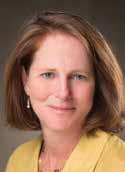 Dr. Rabbi Barat Ellman (Jewish Theological Seminary of America, ’04, ’11) is a scholar of Hebrew Bible. Her areas of research interests include: biblical religion and theology, the social world reflected in the Bible, and ways to draw upon biblical material in contemporary social justice work. She is the author of Memory and Covenant: The Role of Israel’s and God’s Memory in Sustaining the Deuteronomic and Priestly Covenants (Fortress, 2013).
Dr. Rabbi Barat Ellman (Jewish Theological Seminary of America, ’04, ’11) is a scholar of Hebrew Bible. Her areas of research interests include: biblical religion and theology, the social world reflected in the Bible, and ways to draw upon biblical material in contemporary social justice work. She is the author of Memory and Covenant: The Role of Israel’s and God’s Memory in Sustaining the Deuteronomic and Priestly Covenants (Fortress, 2013).
A Wexner Graduate Fellow and a member of Phi Beta Kappa, Rabbi Dr. Ellman is an adjunct assistant professor of Theology at Fordham University and on the faculty of the Bard Prison Initiative. In addition to her academic positions, Rabbi Dr. Ellman is actively involved in social justice work with organizations such as Jews for Racial and Economic Justice (JFREJ); T’ruah: the Rabbinic Call for Human Rights; Just LeadershipUSA; and New Sanctuary Coalition.
______________
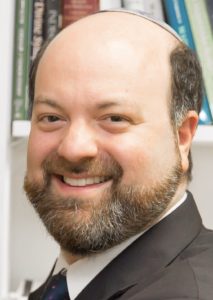 Dr. Eitan P. Fishbane is Associate Professor of Jewish Thought at the Jewish Theological Seminary (JTS), where he has taught since 2006. Professor Fishbane researches and teaches about the literature and thought of Jewish mysticism from medieval Kabbalah to modern Hasidism. He has served on the Faculty Executive Committee, the Rabbinical School Council, and the Recruitment Committee, among others. He is the author or editor of several books, including: As Light Before Dawn: The Inner World of a Medieval Kabbalist (Stanford University Press, 2009); The Sabbath Soul (Jewish Lights Publishing, 2011); The Art of Mystical Narrative: A Poetics of the Zohar (Oxford University Press, 2018); and, most recently, Embers of Pilgrimage: Poems (Panui Publications, 2021).
Dr. Eitan P. Fishbane is Associate Professor of Jewish Thought at the Jewish Theological Seminary (JTS), where he has taught since 2006. Professor Fishbane researches and teaches about the literature and thought of Jewish mysticism from medieval Kabbalah to modern Hasidism. He has served on the Faculty Executive Committee, the Rabbinical School Council, and the Recruitment Committee, among others. He is the author or editor of several books, including: As Light Before Dawn: The Inner World of a Medieval Kabbalist (Stanford University Press, 2009); The Sabbath Soul (Jewish Lights Publishing, 2011); The Art of Mystical Narrative: A Poetics of the Zohar (Oxford University Press, 2018); and, most recently, Embers of Pilgrimage: Poems (Panui Publications, 2021).
______________
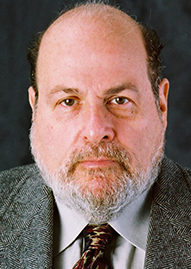 Dr. Stephen A. Geller is the Irma Cameron Milstein Professor of Hebrew Bible (emeritus) at the Jewish Theological Seminary in New York. He received ordination from JTS in 1965, and a PhD from Harvard in 1976 in Near Eastern Languages and Literatures. He has also taught at York University in Toronto, Dropsie College in Philadelphia, and Brandeis University in Waltham, MA. He has worked in the field of biblical literature and religion, and has published books and numerous articles in these areas, among them Sacred Enigmas. Literary Religion in the Hebrew Bible (Routledge, 1996) and, most recently,studies on the role of nature in biblical religion and other topics. He is currently working on a commentary on the Book of Psalms for the Hermeneia series.
Dr. Stephen A. Geller is the Irma Cameron Milstein Professor of Hebrew Bible (emeritus) at the Jewish Theological Seminary in New York. He received ordination from JTS in 1965, and a PhD from Harvard in 1976 in Near Eastern Languages and Literatures. He has also taught at York University in Toronto, Dropsie College in Philadelphia, and Brandeis University in Waltham, MA. He has worked in the field of biblical literature and religion, and has published books and numerous articles in these areas, among them Sacred Enigmas. Literary Religion in the Hebrew Bible (Routledge, 1996) and, most recently,studies on the role of nature in biblical religion and other topics. He is currently working on a commentary on the Book of Psalms for the Hermeneia series.
______________
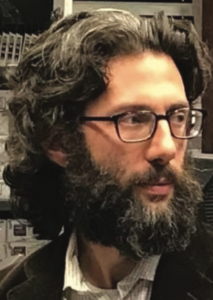 Dr. Aaron Koller is professor of Near Eastern studies at Yeshiva University, where he is chair of the Beren Department of Jewish Studies. His most recent book is Unbinding Isaac: The Significance of the Akedah for Jewish Thought (JPS/University of Nebraska Press, 2020), and his last book was Esther in Ancient Jewish Thought (Cambridge University Press). He also writes often on Semitic philology. Aaron has served as a visiting professor at the Hebrew University in Jerusalem and held research fellowships at the Albright Institute for Archaeological Research and the Hartman Institute. He lives in Queens, NY with his wife, Shira Hecht-Koller, and their children.
Dr. Aaron Koller is professor of Near Eastern studies at Yeshiva University, where he is chair of the Beren Department of Jewish Studies. His most recent book is Unbinding Isaac: The Significance of the Akedah for Jewish Thought (JPS/University of Nebraska Press, 2020), and his last book was Esther in Ancient Jewish Thought (Cambridge University Press). He also writes often on Semitic philology. Aaron has served as a visiting professor at the Hebrew University in Jerusalem and held research fellowships at the Albright Institute for Archaeological Research and the Hartman Institute. He lives in Queens, NY with his wife, Shira Hecht-Koller, and their children.
______________
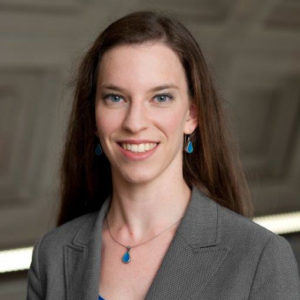 Cantor Sarah Myerson proudly serves the community of Kane Street Synagogue in Brooklyn, New York. She was commissioned by the Cantors Assembly in 2018, and invested by the Jewish Theological Seminary of America in 2015, conferred with Diploma of Hazzan and Master of Sacred Music. She received her Bachelor of Music (Composition) degree, honors first class, from the Sydney Conservatorium of Music, Australia.
Cantor Sarah Myerson proudly serves the community of Kane Street Synagogue in Brooklyn, New York. She was commissioned by the Cantors Assembly in 2018, and invested by the Jewish Theological Seminary of America in 2015, conferred with Diploma of Hazzan and Master of Sacred Music. She received her Bachelor of Music (Composition) degree, honors first class, from the Sydney Conservatorium of Music, Australia.
Cantor Sarah continues to write and perform new compositions, especially in Yiddish and Hebrew, and has developed a profile as a musician, speaker, educator, and Yiddish dance teacher and leader. Cantor Sarah’s Art As Midrash classes are based on her art history and biblical exegesis studies with Dr. Shulamit Laderman at the Schechter Institute of Jewish Studies, Jerusalem.
______________
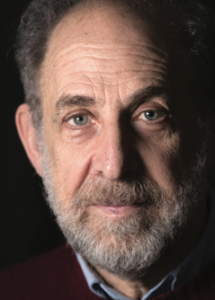 Dr. Raymond Scheindlin is professor emeritus of medieval Hebrew literature at the Jewish Theological Seminary and the author of books and academic studies of the subject. He is also active as a translator from Hebrew, having published a verse translation of the Book of Job and translations of other works, both literary and academic. He has been associated with the Kane Street Synagogue since 1974, serving as part-time rabbi from 1979 to 1982. In addition, for over forty years, he served as High Holiday Cantor and continues to lead a Yom Kippur study session. His books include: Wine, Women, and Death: Medieval Hebrew Poems on the Good Life (1986); The Gazelle: Medieval Hebrew Poems on God, Israel, and the Soul (1991); A Short History of the Jewish People (1998); The Book of Job (1999); and The Song of the Distant Dove: Judah Halevi’s Pilgrimage (2008). His most recent book is Vulture in a Cage: Poems by Solomon Ibn Gabirol, which appeared in 2016. More information about his books and a selection of his informal essays are available on his website, raymondscheindlin.com
Dr. Raymond Scheindlin is professor emeritus of medieval Hebrew literature at the Jewish Theological Seminary and the author of books and academic studies of the subject. He is also active as a translator from Hebrew, having published a verse translation of the Book of Job and translations of other works, both literary and academic. He has been associated with the Kane Street Synagogue since 1974, serving as part-time rabbi from 1979 to 1982. In addition, for over forty years, he served as High Holiday Cantor and continues to lead a Yom Kippur study session. His books include: Wine, Women, and Death: Medieval Hebrew Poems on the Good Life (1986); The Gazelle: Medieval Hebrew Poems on God, Israel, and the Soul (1991); A Short History of the Jewish People (1998); The Book of Job (1999); and The Song of the Distant Dove: Judah Halevi’s Pilgrimage (2008). His most recent book is Vulture in a Cage: Poems by Solomon Ibn Gabirol, which appeared in 2016. More information about his books and a selection of his informal essays are available on his website, raymondscheindlin.com
______________